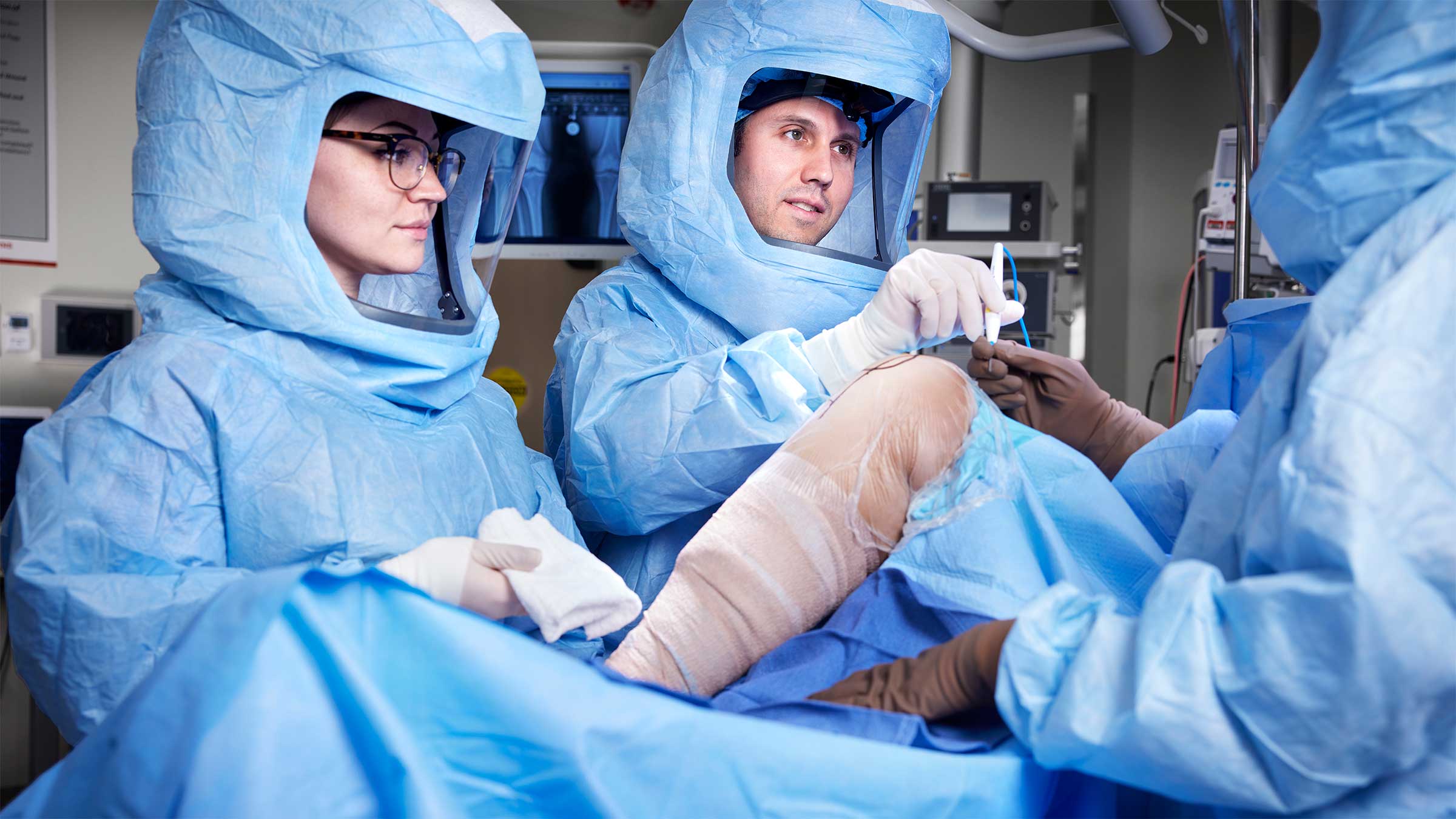
The five stages of grief originated from the book On Death and Dying by Elisabeth Kübler-Ross, MD, first published in 1969. The book is based on interviews with patients receiving a terminal illness diagnosis and was intended to serve as a guide to improve end-of-life treatment and care. The five stages are:
1 Denial
This phase encompasses feelings of shock, confusion, fear and avoidance. It's important to assess the patient’s comprehension of a diagnosis, as some may be considered “in denial” when the reality is they lack understanding of the diagnosis.
2 Anger
Other feelings experienced during this stage may include anxiety, irritation or frustration. They may be directed toward others, such as health care providers, family members, etc.
3 Bargaining
This can also be identified when patients are struggling to find meaning or reaching out to others. This is usually an attempt for patients to regain some control over their situation.
4 Depression
This stage may be considered the most emotional, difficult stage, since the previous three stages are a subconscious effort to avoid feeling the overwhelming sadness and helplessness that comes with depression.
5 Acceptance
Patients may begin to explore options, whether it's to cherish the time left with others or make arrangements to help loved ones after they’ve passed.
What the five stages of grief may be missing
While the five stages of grief started the conversation about death and dying, and ultimately led to further discussions around grief and loss, we now have a better understanding of the grieving process. Other models have been developed to explain the grieving process in a more fluid, less restrictive manner. One criticism of the model is that it lacks empirical evidence, although the five stages is still considered to be one of the more well-known models, and certainly has historical and cultural significance.
Other models that may better explain the process for someone experiencing loss:
Bowlby and Parkes’ Four Phases of Grief
While this is based on Kübler-Ross’ model, it emphasizes that the grieving process is not linear. The phases are:
- Shock and disbelief
- Searching and yearning
- Disorganization and repair
- Rebuilding and healing
Worden’s Four Basic Tasks in Adapting to Loss
This version isn't focused on phases, but rather tasks, and is intended for the survivor or the patient facing death. The tasks include:
- Accepting reality of loss
- Experiencing pain or grief
- Adjusting to the environment
- Redirecting emotional energy
Is there a “right” or “wrong” way to grieve?
The simple answer is, of course, no. There's no right or wrong way to grieve. Grief is a unique experience that's a natural and normal response to any kind of loss, including death, divorce, health or career.
That being said, there are healthy ways to cope with your loss. We have to be careful to identify unhealthy coping behaviors, such as increased substance use, social isolation, avoiding your feelings by distracting yourself, making impulsive or drastic changes, ignoring self-care, etc. These behaviors should be carefully monitored and avoided. If you're at risk of harming yourself or others, seek medical attention immediately.
Connect with the 988 Suicide & Crisis Lifeline 24/7 by calling or texting 988
What positive steps can you take to address grief?
We all need support from time to time, and grief is no exception. If you’ve experienced a significant loss, seek social support and practice wellness activities that promote good health. Make sure you're getting enough sleep, eating healthy foods and exercising. Other positive steps you can take are spending time in nature or engaging in hobbies or activities that promote creativity and self-expression. Consider meeting with a therapist or joining a grief group if additional support is needed.
When is it time to seek professional help?
While social support is essential, sometimes talking to your loved ones can be difficult because they may be going through their own grieving process. Therapy, whether individual or group, can facilitate the recovery process. Talking to a therapist provides a safe space for reflection and healing. Therapists can also provide tools to support your recovery. Just remember, you don’t need to go through this alone. Whether it's seeking professional help or encouragement from a friend, don’t hesitate to do what you need to do in order to move forward and heal.

Help for mental health conditions
Ohio State offers personalized, compassionate care for your mental health concerns.
Learn more



